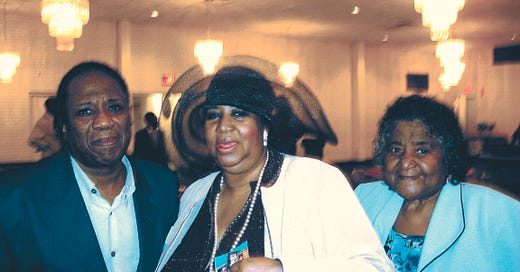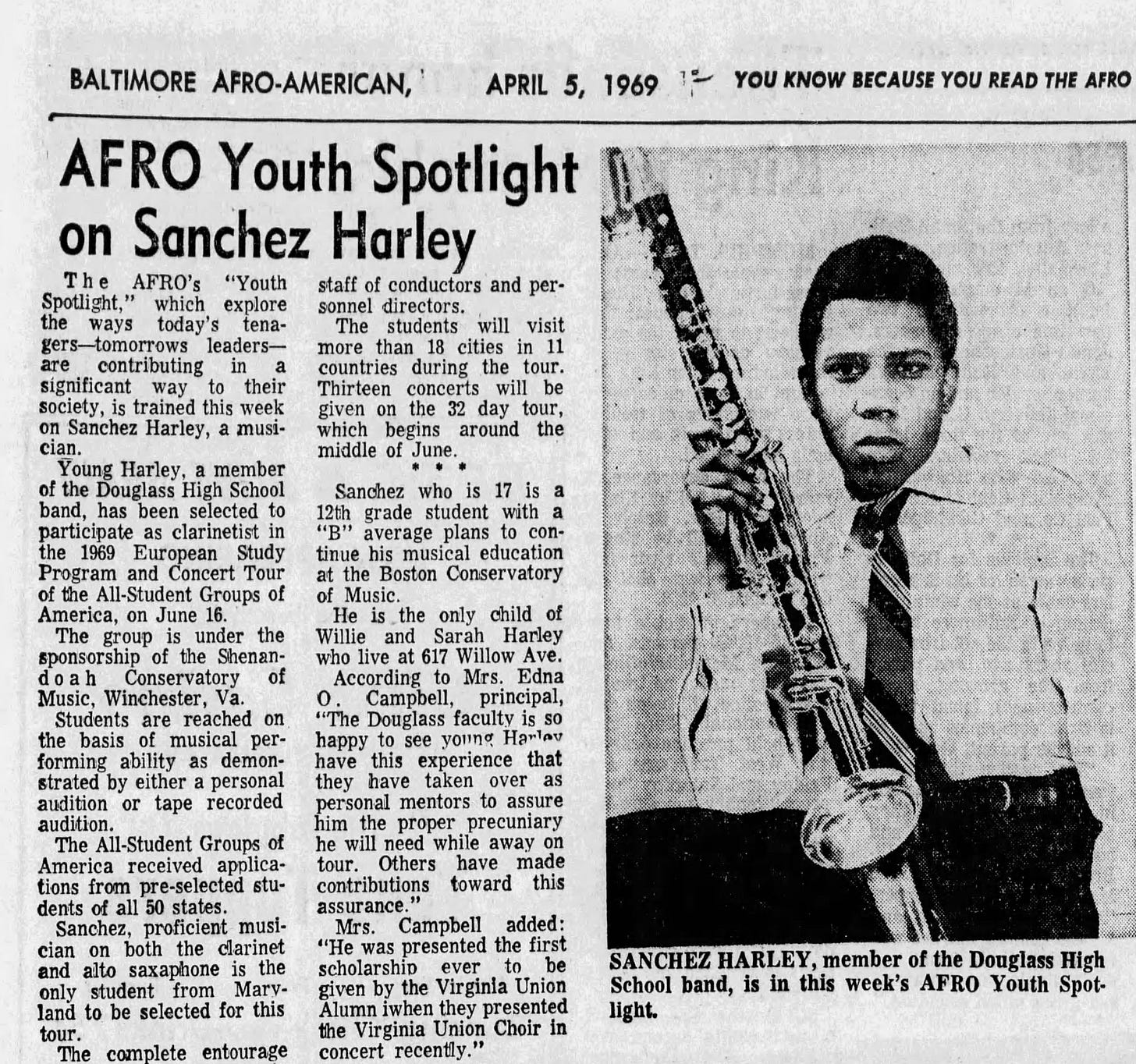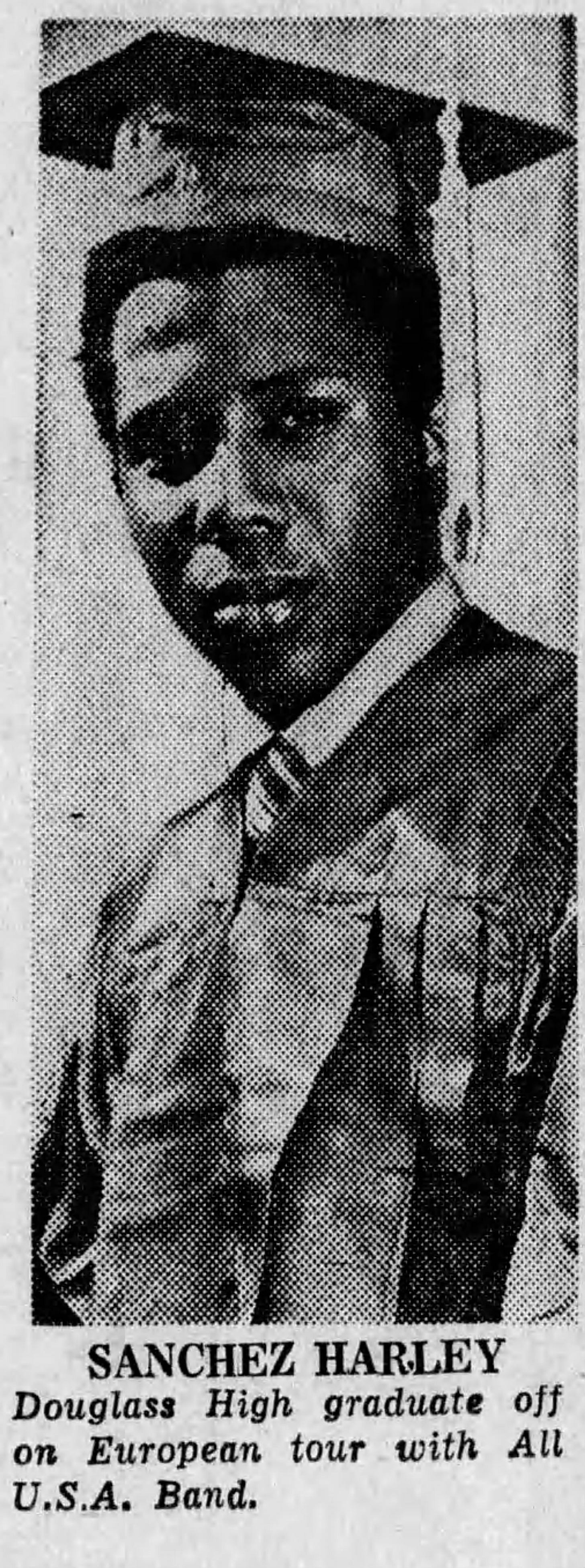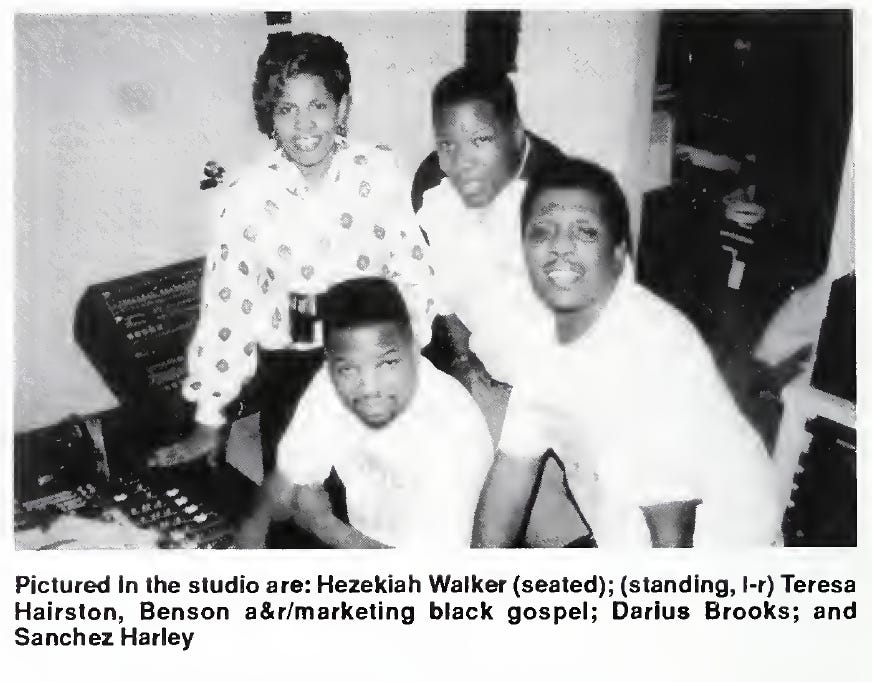Sanchez Harley (1951-2025)
Whether you knew his name or not, you’ve heard his contributions as a producer, arranger and songwriter on some of the most important gospel releases of the past fifty years.
Music lost a massive talent this past week—the great Sanchez Harley.
Whether you knew his name or not, you’ve certainly heard his contributions as a producer, arranger or songwriter on some of the most important gospel releases of the past fifty years, including Shirley Caesar’s Live in Chicago, Albertina Walker’s Songs of the Church, and Kirk Franklin’s The Rebirth of Kirk Franklin.
Born and raised in Baltimore, Maryland, Harley was a prodigious talent, playing clarinet and alto saxophone in his high school’s band, where he was given the opportunity to tour Europe and begin conducting as a student. When he came to Tennessee as a student at Tennessee State University, he became a part of the burgeoning music scene in East and North Nashville, balancing his classical training with what he learned from musicians in clubs around the city.
As a member of Bottom & Company, he recorded one album on Motown Records, earning his first recording credits as an arranger. Being identified with Motown brought other opportunities as a player, arranger, and writer with artists like Peabo Bryson, Bloodstone, and Ben E. King. He began playing on country music sessions with some of Nashville’s top arrangers, which created opportunities for his talents as an arranger to be recognized.
His progression into gospel and contemporary Christian music began in the late seventies and led to an illustrious career as a producer. His signature sound came to define the standard gospel sound of the eighties and nineties, relying upon formalized horn and string arrangements, normalizing more elaborate production that moved beyond the three-to-four-piece rhythm section recordings of the fifties, sixties, and much of the seventies. During that era, he made his mark on the historic recordings of Milton Brunson & The Thompson Community Singers, Hezekiah Walker & the Love Fellowship Choir, Albertina Walker, Shirley Caesar, O’landa Draper & the Associates, Tramaine Hawkins, Bobby Jones & New Life, and The Williams Brothers.
I had the opportunity to spend extensive time with Sanchez in 2022 and 2023, interviewing him about his genre-defying career. Today, I’m sharing some quotes from our conversations about some of the highlights of his one-of-a-kind career for the first time below.
McGuire—One Love In My Lifetime—from Destined to Be Yours (1978)
One of Sanchez’s earliest credits in contemporary Christian music was on McGuire’s Grammy-nominated 1978 release Destined to Be Yours. McGuire was a super-group that included McGuire and his then-wife Joy (both from The Downings) as the lead vocalists, with future country super-producer Tony Brown and Fred Satterfield as two of the group’s musicians.
"The first time I met Dony [McGuire] was with that project. One of the ways I got into the [Christian music] industry was that I had been doing some things with Norbert Putnam. There weren’t many other African-Americans doing arranging. During that time, I was not that into producing. I always wanted to arrange and do horns and strings, but work in Nashville for an African-American was limited. I matriculated to producing to create work as an arranger. It wasn’t until about five years later [after ‘Destined to Be Yours’] that I really began producing.”
“One Love In My Lifetime” was a fan favorite recorded by Diana Ross on her self-titled 1976 release. Terri McFadden, known for writing message-infused soul, co-wrote the song. McFadden also wrote “I’ll Keep a Light in My Window,” popularized by the New York Community Choir. Sanchez would arrange that song for Shirley Caesar in 1983.
Shirley Caesar—Sailin’ on the Sea of Your Love—Sailin’ (1984)
Sanchez began working with Shirley Caesar as an arranger when she joined Word Records’ roster in 1980. Harley and frequent collaborator Lloyd Berry’s talents were on full display on 1981’s Go and 1983’s Jesus, I Love Calling Your Name, paving the way for Harley to co-produce 1984’s Grammy and Dove Award-winning Sailin’ with David Lehman. The album’s title track united Caesar with her labelmate, soul legend Al Green.
“My gospel years really started with Shirley Caesar. There was a gentleman at Word named James Bullard and James stood up for me to be involved in producing Shirley Caesar. That’s how the gospel production [work] started with the gospel labels. In those days, in terms of gospel, in Nashville there was still a little bit of covert racism in terms of the music industry, even in gospel. It wasn’t out front. You could be black and arrange or be a musical director, but that did not extend to producing. We were actually doing a lot of the producing as arrangers [in many instances]. With James Bullard standing up for me to produce Shirley, I transitioned from an arranger to a producer.”
For Sailin’, Sanchez brought Loris Holland, a keyboardist who was also expanding the gospel sound with his classical and jazz influences. Holland added his flourish to the diverse range of material Harley, Lehman and Caesar chose (which included covers of CCM hits like Leon Patillo’s “Star of the Morning” and Carman’s “Sunday’s on the Way”) in what might be Caesar’s most sophisticated, well-rounded release.
GMWA Women of Worship—Order My Steps—It’s Our Time (1994)
In the 1990s, Sanchez partnered with Al Hobbs’ Aleho Records and began producing many of the label’s artists, groups, choirs, and, most notably, the Gospel Music Workshop of America’s annual releases. In 1994, he produced the first release by the organization’s Women of Worship choir. Soloists on the project included Bobby Jones & New Life’s Nuana Dunlap and Bishop Yvette Flunder, but the album’s hit was “Order My Steps,” led by the dynamic Mimi Redd.
While the 1990s produced several definitive gospel songs, “Order My Steps” is one of the few that lived beyond the decade. It remains a popular choral selection today and has transcended the gospel music world, covered by everyone from EGOT winner Jennifer Hudson to former CCM artist Teri DeSario. The original recording of the song has amassed an international audience with over 60 million views on YouTube alone.
Kirk Franklin—Hosanna—The Rebirth of Kirk Franklin (2002)
On the heels of the controversy surrounding Franklin’s late 90s crossover success with God’s Property and Nu Nation, Franklin returned to the more moderate blend of contemporary and traditional gospel that had first brought him success with his debut album, Kirk Franklin and the Family. To accomplish that, he brought Sanchez Harley on as his co-producer.
The album was, in a sense, a new millennium version of Shirley Caesar’s Sailin’. While Harley had Caesar interpreting CCM material in 1984, The Rebirth of Kirk Franklin put Franklin on stage with CCM artists like Jaci Valesquez, Crystal Lewis and TobyMac, as well as gospel legends like Willie Neal Johnson, Richard Smallwood, and Yolanda Adams. It brought the two worlds together in a way that had only happened sporadically since CCM’s emergence in the late 60s.
The resultant The Rebirth of Kirk Franklin earned a platinum certification, three Dove Award nominations, with a win in the Contemporary Gospel Album of the Year category.
Rizen—View That City—Rizen (2003)
The most omnipresent female group of the first decade of the 2000s was Rizen, a group Sanchez signed to his label ChezMusique, which was distributed by Light Records, one of gospel’s most legendary labels that had recently been rebooted. Billboard praised the group as one that put “a 21st-century stamp on the straight-ahead, traditional gospel sound of pioneers like the Caravans, the Clara Ward Singers and the many solo legends those acts spawned.”
Rizen became the tour de jour on the church circuit, making frequent appearances on the Trinity Broadcasting Network, the Word Network, conferences with Juanita Bynum, and the Sisters in the Spirit Tour with Bynum, Yolanda Adams, Martha Munizzi, Kelly Price, and Sheila E. The group won the 2004 Best New Artist Award at the Stellar Awards, and earned two Dove Award nominations.
Aretha Franklin—Faithful (featuring Karen Clark-Sheard)—A Woman Falling Out of Love (2011)
When The Queen of Soul began production on a project for her own label, Aretha Records, she called Sanchez Harley to produce some gospel material she’d been collecting. One of those songs was a Richard Smallwood composition that would become a duet with one of her musical daughters, Karen Clark-Sheard.
Sanchez assembled a crew of Nashville’s first-call arrangers, musicians and singers—including Lloyd Berry, the late Derrick Lee, Nathan Young, Terry Baker, Bob Bailey, Kim Fleming, and Vicki Hampton.
“In doing this song, I can remember trying to get her to match Karen exactly and she said ‘Sanchez, perfect is not perfect.’
That’s something I’m still trying to learn because that is true, which leads to the definition of feel. Feel is the amount of imperfection that something has. The masterclass is in determining how much of the ‘bad’ you need to include in something to make it good.
I did a comp of their vocals and worked on it for three or four weeks. It sounded great! Aretha comes in town, and we were working on Music Row. She came by to hear it, and she said ‘Sanchez, this sounds like Karen’s paying you!’ You know, Karen had all of those beautiful runs in there. But when I went back and reduced the vocals and created another comp and created more space, then it began to really feel like a record. That taught me that sometimes it isn’t what you sing…it’s what you don’t sing.”











Now I know I have heard and been touched by Sanchez Harley. Thank you for this in depth tribute. So sorry for your loss and everyone's.